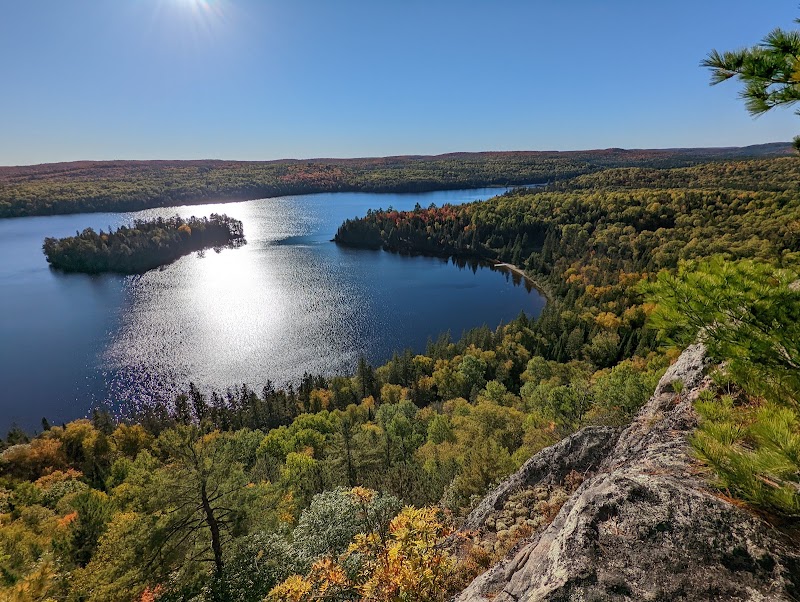
Niagara Escarpment Adventures
The Niagara Escarpment is a UNESCO World Biosphere Reserve stretching across the Great Lakes region and known for its unique geological formations and outdoor recreation opportunities.
About Niagara Escarpment

The Niagara Escarpment is a prominent geological escarpment stretching over 650 miles through the Great Lakes region of North America. Not only valued for its stunning cliffs and ridges, it plays a crucial ecological role. The escarpment was formed over millions of years through both glacial and erosion processes, creating its unique shape and structure seen today. Areas such as the Bruce Peninsula and Niagara Falls demonstrate its impressive diversity and appeal. Rich in biodiversity, this region hosts rare plant and animal species, providing critical habitats. Historical records show that native communities lived along the escarpment, benefiting from its resources. Today, visitors explore it for hiking, rock climbing, and sightseeing. Notable landmarks include the Bruce Trail in Canada, which follows the escarpment's edge, and the famous Niagara Falls. The Escarpment's visitor appeal is enhanced by its combination of natural beauty, ecological significance, and recreational opportunities, drawing people for both education and adventure.
Highlights
Bruce Trail - Canada's longest and oldest marked footpath.
Niagara Falls - One of the most famous waterfalls in the world.
Uncommon habitats - Home to several rare plant and animal species.
Cave Point County Park - Offers stunning views of limestone formations and Lake Michigan.
Notable Natural Features
Bruce Trail
This long-distance footpath follows the Niagara Escarpment, offering breathtaking views.
Niagara Falls
Located at the southern end of the escarpment, this massive waterfall is an international tourist attraction.
Rattlesnake Point
A popular location for rock climbers with several trails leading to stunning vistas.
